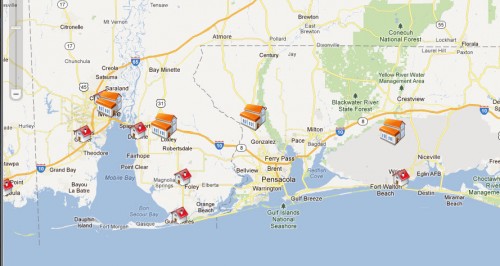Community Complaints Drive Police Response to Prostitution Demand
Categories: blogposts
One of the issues that frequently arises in debates about whether prostitution should be legalized, decriminalized, or remain prohibited is the assertion that it is victimless. The argument against prohibition is built upon the essentially libertarian idea that government should not intervene in commercial sex if it is between consenting adults. The case for prohibition is that commercial sex is inherently (or at least usually) harmful to the people directly involved, and to others not directly engage in either buying or selling sex.
“We just go out when we receive enough complaints from the neighborhood. Always in prostitution, you’ll have areas where prostitution will pop up near crack houses, and for us putting female [officers] out, we’re trying to get the males to stop from coming into that area.”
Chief Ken Swindle, Tuscaloosa, Florida Police Department, 2006
While the intent of our National Assessment research was not to settle debates about whether prostitution is or is not inherently harmful (harm is assumed by those engaged in the initiatives we examined), the study was able to gather information that is relevant to the discussion. During our initial interviews for that project, we were struck by how often (that is, virtually always) we were told by police officers and other respondents that community complaints are what drives when and where police conduct prostitution operations. The complaints are not simply expressions of moral outrage, although they can certainly be involved. Instead, we heard numerous descriptions of tangible harm to individuals, communities, and businesses, including claims that prostitution was accompanied by verbal and physical fighting near people’s homes and businesses, and within hotels and apartments; sex occurring in public areas such as doorways, alleys, and parked cars; and condoms and syringes on sidewalks, doorsteps, and yards. There are frequent complaints of women and girls being solicited and sometimes threatened by johns while walking to work or school. A less frequent but serious problem mentioned in several communities (e.g., San Diego, California; Worcester, Massachusetts) was from women whose cultural heritage meant they could face serious repercussions if they were seen being solicited by a john, even if the women or girls did nothing to provoke it and did not respond to it.

“The kids who get out of school around 82nd (Avenue) are propositioned. [Prostitutes and johns] have sex in parking lots; we find condoms and needles; pimps fight against each other. When you think of how 82nd Avenue’s been associated with these crimes, we want to get away from that.”
JR Ujifusa, Multnomah County, Oregon Deputy District Attorney, 2010
In response to such information acquired through interviews, we examined news archives to determine how frequently complaints were reported as a reason for police operations on prostitution. From the news reports and interviews together, we found that resident and/or business complaints have led to reverse stings in at least 87% of the 1,055+ U.S. cities and counties studied. This figure probably underestimates the overall percentage of police prostitution operations that are complaint-driven. While we found in news reports and other documentation of complaints about prostitution in over 80% of the locations, over 95% of police interviewed in 200 of the communities said that prostitution operations were often conducted by their departments in response to complaints. The percentage derived from news reports is likely to under-represent the level of police activity responsive to community complaints, since police do not always issue press releases on undercover prostitution operations, nor do they always say in news releases whether complaints elicited the operations, and news outlets do not always see fit to report on what caused reverse stings to be conducted.



Comments are closed.